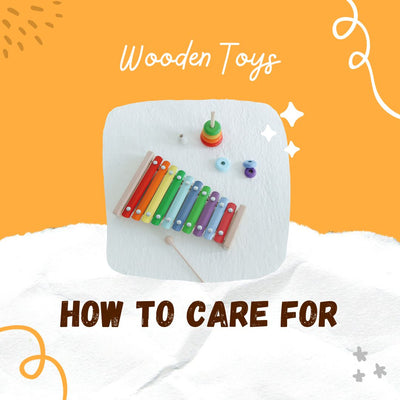Today, let's talk about the joys of pretend play. You know the ones I'm talking about – the wooden tea sets, cameras, telephones, and tool sets that we all had as kids. Well, I recently discovered that these toys are just as much fun for toddlers as they were for us.
My daughter recently picked a wooden afternoon tea set from the store, and she has been obsessed with it ever since. She sets up the tiny cups and saucers on her play table and serves me imaginary tea with a big smile on her face. Of course, the tea is always "too hot" and I have to blow on it before taking a pretend sip.
But it doesn't stop there. there are the wooden cameras that she loves to use to take pictures of everything and everyone around her. She'll hold it up to her eye and make clicking noises while I strike a pose. It's hilarious to see her trying to capture the perfect shot of the baby, who couldn't care less about being a model.
And then there's the wooden telephone, which she uses to have imaginary conversations with her stuffed animals and dolls. I can hear her chattering away, nodding and saying "uh-huh" as if she's really listening to the other end of the line.
But my personal favourite is the wooden tool set. My daughter loves to "fix" things around the house with her tiny wooden hammer and screwdriver. I'll hand her a toy that needs some repair and she'll go to town, banging and twisting away until she's satisfied with the job. It's like having our own personal handywoman on call.
Pretend play with wooden toys is not only fun, but it also encourages imagination and creativity. Plus, it's a great way for parents to bond with their kids while teaching them important skills like sharing, communication, and problem-solving.
So, fellow parents, if you haven't already, I highly recommend investing in some pretend toys for your little ones. You never know what kind of adventures you'll go on together.
Until next time, keep pretending!
Pretend play is an essential part of child development and provides numerous benefits for children as they grow and learn. Research has shown that pretend play helps children develop socially, emotionally, cognitively, and creatively. Here are some of the benefits of pretend play
- Enhances social skills
Pretend play provides an opportunity for children to practice and develop their social skills. According to a study published in the journal Child Development, pretend play allows children to learn important social skills such as cooperation, communication, and conflict resolution. This study found that children who engage in pretend play are better able to take on the perspectives of others, negotiate, and resolve conflicts.
- Develops language skills
Pretend play can also help develop language skills in young children. A study published in the Journal of Child Language found that children who engaged in more pretend play had a larger vocabulary and stronger language skills. Pretend play can also help children develop skills such as turn-taking, listening, and expressing themselves through language.
- Improves cognitive development
Pretend play can enhance cognitive development in children. A study published in the Journal of Cognition and Development found that children who engage in pretend play have better memory skills and higher levels of executive functioning. Pretend play can also help children develop problem-solving skills and creativity.
- Fosters emotional development
Pretend play can help children explore and understand their emotions. According to a study published in the Journal of Personality and Social Psychology, children who engage in pretend play are better able to regulate their emotions. Additionally, pretend play can help children understand the emotions of others, which can lead to increased empathy.
- Boosts confidence and self-esteem
Pretend play can help children develop a sense of mastery and control over their environment. This can lead to increased self-esteem and confidence. A study published in the Journal of Child Psychology and Psychiatry found that children who engage in pretend play have higher levels of self-esteem and confidence.
- Encourages creativity and imagination
Pretend play allows children to use their creativity and imagination to create new scenarios and roles. This can help develop problem-solving skills and creative thinking. A study published in the Journal of Play Therapy found that pretend play can help children develop their creativity and imagination.
Pretend play is an important part of child development that offers numerous benefits. By encouraging children to engage in pretend play, parents and caregivers can help promote social, emotional, and cognitive development. So the next time your child asks you to play make-believe, remember that it's not just a game - it's an essential part of their growth and development.
Sources:
- "Pretend Play and Young Children's Development," Child Development
- "Pretend Play and Children's Language and Literacy Skills in the Early Years," Journal of Child Language
- "The Effect of Pretend Play on Cognitive and Executive Functioning in Young Children," Journal of Cognition and Development
- "The Effects of Pretend Play on Emotion Regulation in Children," Journal of Personality and Social Psychology
- "Pretend Play, Creativity, and Self-Esteem in Children," Journal of Child Psychology and Psychiatry
- "The Effects of Pretend Play on Creativity in Preschool Children," Journal of Play Therapy





